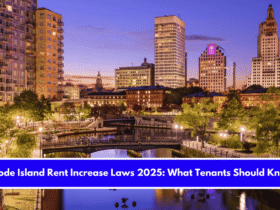WASHINGTON, D.C. — Texas Republicans in both the U.S. House of Representatives and Senate have introduced two bills that would give the federal government the power to seek the death penalty for undocumented migrants convicted of murder — even in states where executions are currently banned.
The bills, titled the “Justice for Victims of Illegal Alien Murders Act” (in the House) and the “Justice for American Victims of Illegal Aliens Act” (in the Senate), are likely to be combined into one legislative package. These bills aim to enforce President Donald Trump’s executive order from January, which sought justice for American citizens killed by people who entered the U.S. unlawfully.
Purpose of the Bills
Senator John Cornyn, who introduced the Senate bill, stated that the law would ensure violent criminals who enter the U.S. illegally and murder American citizens would be subject to the death penalty.
“Violent predators who enter our country illegally and brutally murder American citizens should be subject to the death penalty as a consequence of their heinous actions,” said Cornyn, who was joined by a dozen other GOP senators.
“This legislation would protect the American people, make our country safe again, and ensure no future president can single-handedly undo this consequence for taking innocent lives.”
Meanwhile, Representative Morgan Luttrell, who introduced the bill in the House, argued that the law would close a “dangerous loophole” by eliminating inconsistencies in how capital punishment is administered.
He said that the bill would give federal authorities the power to seek justice in cases where local prosecutors may not have the resources or support to pursue death penalty cases.
“If you’re in this country illegally and you murder an innocent American, you will be held fully accountable no matter where the crime happens,” Luttrell stated.
Trump’s Executive Order
These new bills follow from Trump’s “Restoring the Death Penalty and Protecting Public Safety” executive order, which instructed the Justice Department to seek the death penalty in cases involving undocumented migrants convicted of murder.
The executive order was sparked by high-profile cases like the killings of Rachel Morin, a mother-of-five from Maryland, in August 2023, Laken Riley, a nursing student in Georgia, in February 2024, and 12-year-old Jocelyn Nungary in Houston in June 2024.
Trump had used these cases during his presidential election campaign to highlight the issue of “migrant crime” and to call for tougher border control measures and harsher penalties.
Controversy and Criticism
However, the proposed bills and Trump’s comments have stirred up controversy. For example, Homeland Security Secretary Kristi Noem faced backlash after delivering a speech outside the former home of Emma Shafer, a 24-year-old woman killed by an undocumented migrant in Springfield, Illinois.
Noem’s remarks were criticized by Shafer’s grieving parents, who called her “cruel and heartless” for politicizing their daughter’s death.
Legal Opinions on Federal Death Penalty
Some legal experts have raised doubts about the feasibility of the federal government using the death penalty in all murder cases involving undocumented migrants. Erin Epley, a former federal prosecutor for the Southern District of Texas, told Fox 26 Houston that while the death penalty is rare at the federal level, the bills would give the government the ability to seek it in certain cases.
“I do not think the U.S. will move forward with the death penalty in every case involving an illegal immigrant,” Epley said. “But it gives them the ability to do that, especially if the crime has a federal nexus, like the murder of a federal agent.”
To date, only 16 federal executions have been carried out since 1976, making the death penalty a seldom-used tool in federal cases.











Leave a Reply